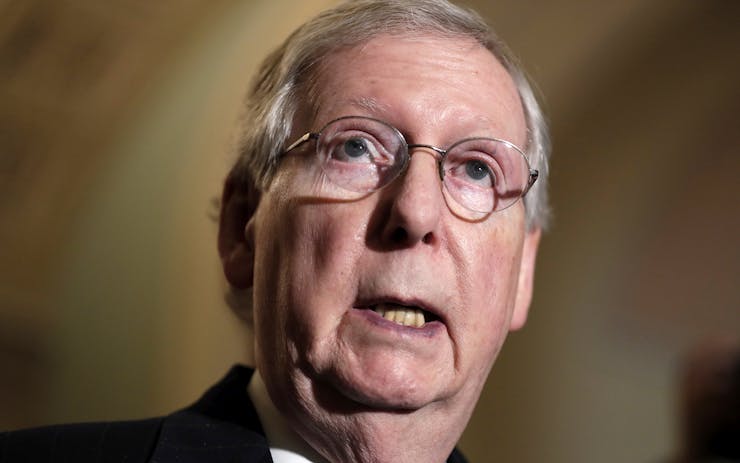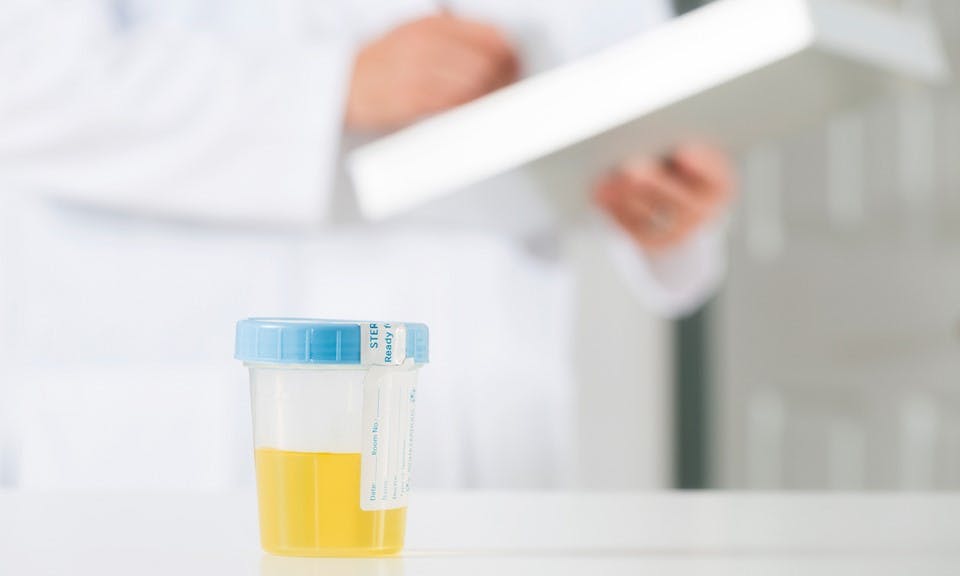Senate Majority Leader Mitch McConnell (R-KY) announced on Monday that he intends to introduce legislation to legalize hemp as an “agricultural commodity.”
Hemp is cannabis that contains less than 0.3% THC, and four years ago it was completely illegal.
The Hemp Farming Act of 2018, cosponsored by Sen. Rand Paul (R-KY), Sen. Ron Wyden (D-OR), and Rep. Jamie Comer (R-KY), would remove federal barriers to the planting and production of hemp, open the way for researchers to apply for grants from the US Department of Agriculture, and allow for state regulation of the plant.
“What will it do?” McConnell said on Monday. “First and foremost, this bill will finally legalize hemp, legalize hemp as an agricultural commodity and remove it from list of controlled substances.”
If such a bill were to pass, it could have profound meaning for manufacturers of cannabidiol (CBD), the medically beneficial cannabinoid that can be extracted from all forms of the cannabis plant, including hemp.
Hemp is legally defined as cannabis that contains less than 0.3% THC, the intoxicating cannabinoid in marijuana. There are no limits on the amount of CBD that may be contained in hemp.
Until recently, hemp had been banned entirely under the Controlled Substances Act, which categorizes all forms of cannabis as a Schedule I substance.
In 2014, however, Congress passed the Agricultural Act (aka the federal farm bill) that legally defined hemp as cannabis containing “0.3 percent THC or less,” and allowing certain states to create pilot programs to grow small amounts of the plant. One of those states was Kentucky, McConnell’s home state.
That pilot project calmed many fears and cleared up confusion about the difference between hemp and higher-THC cannabis, McConnell added:
“In 2014, in getting the pilot project option in the farm bill, there was a lot of discussion about what is this. Is this the same as its distant cousin? I think we’ve moved past that. I think most members of the Senate now understand it’s two very different plans. There may be some continued discussion of that. But I think most everybody … now understands this is a totally different plant.”
(It’s not a totally different plant, actually. It’s still cannabis, but cannabis with extremely low levels of THC.)
Through the pilot program run by Kentucky’s Department of Agriculture, the state has gone from zero hemp production to 12,000 acres in less than four years.
Researchers at the University of Louisville began harvesting the crop on campus in 2016 to study its use as a biofuel and energy source The results of that program have been favorable, and led to the manufacture of products that McConnell apparently had a chance to check out last weekend.

In this August 2016 photo, researchers at the University of Louisville demonstrate how to plant hemp seeds in their 40-foot by 40-foot plot. (Photo courtesy of the University of Louisville’s Conn Center for Renewable Energy Research)
“I just had an opportunity to see some interesting and innovative products, some of which you see here on the table, made with Kentucky-grown hemp,” he said at the US Hemp Roundtable in Frankfort on Monday. “Sunstrand, based in Louisville, contracts with farmers in Henry County to grow hemp that they process into a number of consumer products, including home insulation.”
Shop highly rated dispensaries near you
Showing you dispensaries nearThe state’s senior senator seemed quite taken with the commercial prospects of home-state hemp, which he said was different than its “illicit cousin”:
“Imagine, instead of pink fiberglass, we could use Kentucky-grown, environmentally sustainable hemp to insulate our houses. This represents just one many uses that Kentuckians are finding for this versatile crop.”
Medical marijuana patients, especially those finding relief through the use of CBD, may find a vastly expanded array of products available if hemp were to be legalized nationwide.
In Kentucky, for example, Kings Royal Biotech, a company that develops medical-grade CBD from hemp, broke ground on a new 75,000-square-foot facility in the Carlisle County town of Bardwell on March 15. The company is expected to create 140 full-time jobs in the West Kentucky farming community. Kings Royal expects to start processing locally grown hemp in late 2018, and ramp up to full capacity by mid-2019.
“Industrial hemp is the next big thing in Kentucky,” Keith Taylor, chief operating officer at KRB, said at the groundbreaking ceremony. “The bourbon industry is synonymous with the state, and it is our goal to reach that level of success, where any time someone thinks of hemp-related products, they think of Kentucky.”







